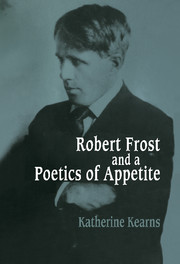Book contents
- Frontmatter
- Contents
- Acknowledgments
- Introduction: The Serpent's Tail
- 1 Irony: Teiresias's Gaze
- 2 Irony II: This Is Not a Pipe
- 3 Women: Dryads, Witches, and Hill Wives
- 4 Eros: The Mischief Maker
- 5 Prosody: White Noise
- 6 Lyricism: At the Back of the North Wind
- Conclusion: Out Far and in Deep
- Notes
- Index
- CAMBRIDGE STUDIES IN AMERICAN LITERATURE AND CULTURE
Introduction: The Serpent's Tail
Published online by Cambridge University Press: 19 March 2010
- Frontmatter
- Contents
- Acknowledgments
- Introduction: The Serpent's Tail
- 1 Irony: Teiresias's Gaze
- 2 Irony II: This Is Not a Pipe
- 3 Women: Dryads, Witches, and Hill Wives
- 4 Eros: The Mischief Maker
- 5 Prosody: White Noise
- 6 Lyricism: At the Back of the North Wind
- Conclusion: Out Far and in Deep
- Notes
- Index
- CAMBRIDGE STUDIES IN AMERICAN LITERATURE AND CULTURE
Summary
And if man once thought that straight vision could allow him to escape the opaque barrier that every body presents to the light, now, in his impetuous desire, he is plunged into the darkness that a supposedly enlightened gaze had projected in its very rings and reversals.
Luce Irigaray, Speculum of the Other WomanAt a most fundamental and pervasive level, Frost's poetry documents a man's struggle with his own oppositional impulses of appetite and moderation. Enclosed, tersely resolved against histrionic self-display, a man seeks to keep the battle internal. But desire will be made manifest, and so this drama plays itself out correlatively in nature and in women and is enlivened by their natural propensity for capitulation. In the natural world where life rises out of death, fruition out of decay, and light out of darkness, the equivalent downward motion is inevitable: nature and women do not merely accept this gravitational urge but welcome it, inviting men to join them in the fall. Frost's poetry is a heroic assertion of conscious prosodic control placed against his relentlessly subversive awareness of internally derived appetitive impulse. His task is Sisyphean because he cannot remove himself from the source of his desires — enacted by externalities, they are projected from within. And for Frost there are no metaphysical truths to counterbalance the appetitive flux: if desire finds its mansion and its grave in an earthy physicality, metaphysics is a rifled and empty crypt (“A Masque of Reason” 1. 284).
- Type
- Chapter
- Information
- Robert Frost and a Poetics of Appetite , pp. 1 - 31Publisher: Cambridge University PressPrint publication year: 1994



